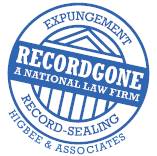A pandemic and dramatic election season did not stop the Michigan legislature and governor from coming together to pass dramatic post conviction relief expansion in a near unanimous fashion. On October 12th, 2020 Governor Whitmer signed into law a package of bills passed with broad bipartisan support from the Michigan Legislature that increases the number of convictions one could set aside, adjusts the waiting periods for eligibility, and lays the framework for a clean slate program. The legislative package also follows up on 2018’s marijuana legalization measure by making it easier for Michiganders to set aside their marijuana possession convictions for offenses that are no longer crimes. Though the bill opening up DUI’s for set aside eligibility was ultimately vetoed by Governor Whitmer, the changes provided by these bills represent a sweeping update to Michigan’s strict set aside law.
House Bills 4983, 4984, and 4985 update waiting periods for eligibility, increase the number of offenses that can be on an eligible record, and alter the way offenses are counted. HB 4983 changes the waiting period for someone to file for set aside from five years since discharge from probation or sentencing to three years for misdemeanors, five years for one serious misdemeanor or one felony, and seven years for someone with more than one felony. Those with misdemeanors will now be able to apply for relief sooner.
Additionally, while previously individuals could only have one felony and two misdemeanors on their record to be eligible for a set aside, HB 4984 expands this number. This bill will allow an individual with up to three felonies to set aside all of their convictions, except for repetitive assaultive crimes or multiple convictions for the same felony with a punishment of up to ten years imprisonment. HB 4985 alters a peculiar feature of Michigan post conviction relief, where previously each offense within a case was counted independently, this bill will now allow offenses committed in the same 24 hour period under the same “transaction” to be counted as one conviction. Some offenses are excluded from this change, including assaultive crimes, crimes involving dangerous weapons, or offenses where the maximum penalty is ten years imprisonment. For those crimes, each offense counts as one “conviction” for the purpose of eligibility even if they occurred within the same criminal transaction.
Michigan’s clean slate program
Michigan’s clean slate program is set forth in HB 4980. If the state appropriates the funding, starting April 11, 2023 clean slate eligible records will be automatically set aside. For misdemeanors the clean slate waiting period is seven years, for felonies it is ten years. Both of these waiting periods are longer than the waiting period for a discretionary set aside. So an individual who did not wish to wait for the automatic process to take place, may proactively file for a set aside on their own or with the professional assistance of an attorney.
Additionally, there is a lifetime limit of two eligible felonies and four eligible misdemeanors (except those punishable by imprisonment for 93 days or less) that can be set aside under this program. Additional limits may also apply to certain categories of offenses. Clean slate is for those individuals who can wait the additional time for relief or who cannot otherwise access relief sooner for other reasons. For those who can access relief now, the proactive set aside remains the best option for the quickest relief from the stigma of a conviction.
Finally, HB 4982 provides relief to those who were convicted of offenses that were made no longer criminal with Michigan’s 2018 marijuana legalization initiative. Individuals with qualifying marijuana convictions will now be able to file for a set aside with a presumption of eligibility. Laws such as this one are an important feature in the movement for marijuana legalization so those with past convictions are not further stigmatized for something that is no longer criminal.
If you want to improve your opportunities and move on from past conviction, please give us a call at (877) 573-7273 and one of our specialists will assist you.
If in the past you were told you were not eligible because of too many offenses on your record or that not enough time had passed, please take our free online eligibility test to see if you are now eligible under this new law. Do not wait to achieve a better future for yourself.



